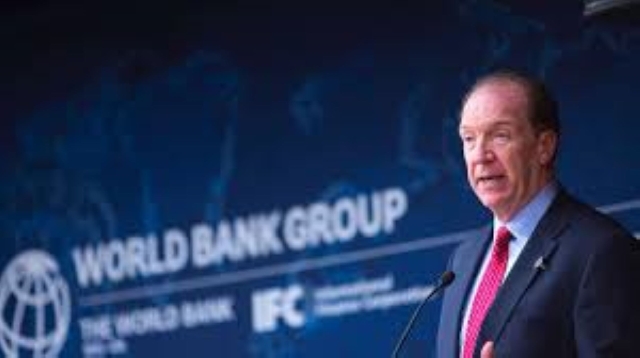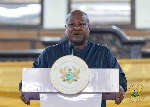WB: Ghana scores 75% in Women, Business and Law 2020 report
 World Bank President, david Malpas
World Bank President, david Malpas
Ghana scored 75% in the latest World Bank report on Women, Business and the Law 2020 Index, 16 places lower in ranking among her sub-Saharan African peers.
The nation, however, did better than Nigeria but fell below The Ivory Coast and Togo.
Mauritius was the highest-ranked country in sub-Saharan Africa with a score of 91.9% followed by South Africa with a score of 88.1%.
Zimbabwe was 3rd with a score of 86.9%, while Cape Verde (86.3%) and Namibia (86.3%) were joint 4th.
Tanzania (84.4%), Togo (84.4%), Liberia (83.8%), The Ivory Coast (83.1%), Zambia (81.3%), Kenya (80.6%), Malawi (80.6%), Burkina Faso (79.4%), Congo DR (78.8%), Rwnada (78.1%), Mozambique (76.1%), Seychelles (76.3%) and Lesotho (75.6%) placed 6th to 16th.
The eight indicators used include mobility, where Ghana scored 100 points, Nigeria 50 and South Africa 100; workplace, Ghana scored 100 75 points, Nigeria 7 and South Africa 100 and Ghana 100.
For pay indicator, Ghana and Nigeria scored 50 points while South Africa scored 100; and on marriage, the three countries got 100 points.
For entrepreneurship, Ghana and Nigeria scored 75 points and South Africa 100; and pension, Ghana and Nigeria again scored 75 points while South Africa scored a paltry 25.
Globally, eight countries scored 100%. They are Belgium, Canada, Denmark, France, Iceland, Latvia, Luxemburg and Sweden.
The 10 economies that improved the most were Saudi Arabia, the United Arab Emirates, Nepal, South Sudan, São Tomé and Príncipe, Bahrain, the Democratic Republic of Congo, Djibouti, Jordan, and Tunisia.
According to the report, eleven economies in sub-Saharan Africa implemented 13 reforms enhancing gender equality, with many placing among the top reformers in the 2020 index.
For example, in 2019 São Tomé and Príncipe adopted a new labour code to meet job market demands and bring laws into compliance with international standards
The Women, Business and the Law report measures laws and regulations that constrain women’s entrepreneurship and employment. This year’s data set and report cover 190 economies.
The data set and analysis can be used to support research and policy discussions around the ways in which the legal environment influences women’s economic activity. Thirty-five data points were scored across eight indicators of four or five binary questions, with each indicator representing a different phase of a woman’s career.
The report is based on an analysis of domestic laws and regulations that affect women’s economic opportunities.
Source: classfmonline.com
Trending Business

NPA commits to sustainable development through effective petroleum regulation – Tameklo
11:53
Ghana holds debt restructuring talks with Saderea bondholders
11:20
IMF-reported $214m gold trading loss occurred after my exit from PMMC – Nana Awuah
10:08
PMMC turned around from crisis to record profits by 2024 – Former MD
09:42
Leila Djansi: Filmmaker calls for hourly wages and commission-based pay to improve work attitudes in Ghana
00:53
C/R: Planned power outage to hit Cape Coast on January 8
21:15
Ghana not going to IMF after current bailout ends - President Mahama
20:58
BoG calls on UK diaspora to invest beyond remittances
16:44
GRA Tax Division visits Palace Mall to enforce VAT reduction and COVID-19 levy removal
11:56
VALCO targets 5,000 jobs, $1 billion annual GDP
10:50



